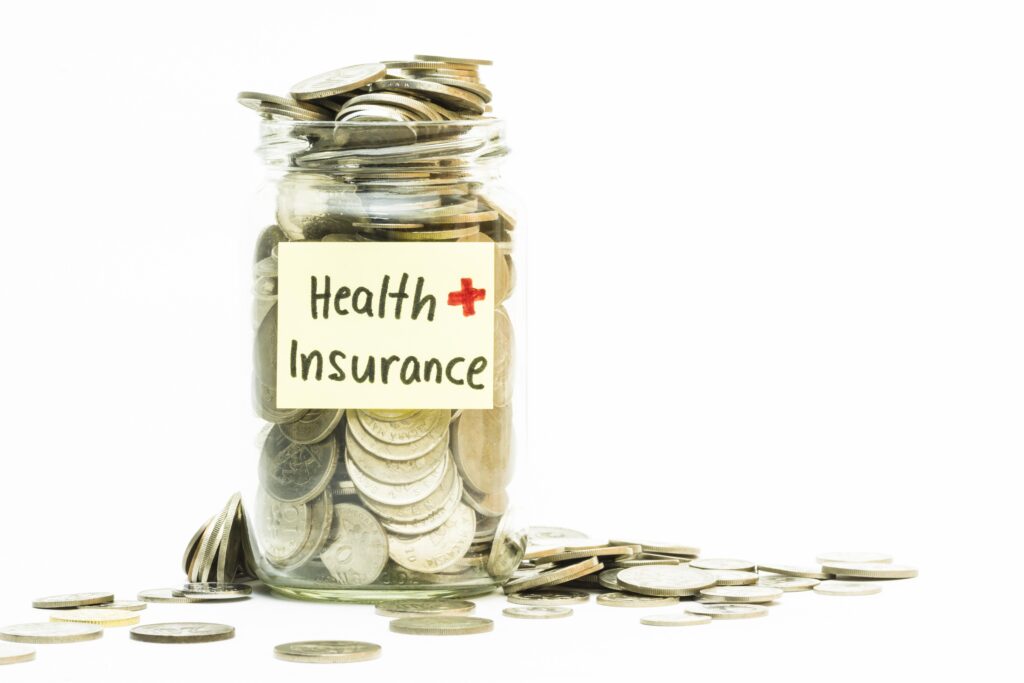Finding affordable health insurance coverage in Florida can feel overwhelming, but with the right information and strategies, you can secure a plan that meets your needs without stretching your budget. As healthcare costs rise and the number of available plans grows, it’s crucial to understand how to compare your options effectively. This guide will provide a step-by-step approach to finding the best coverage at an affordable price, whether you’re self-employed, unemployed, or looking for supplemental coverage.
In this blog, we’ll cover the types of health insurance available in Florida, factors that affect pricing, tips for saving on healthcare, and where to look for additional resources. Whether you qualify for subsidies, employer-sponsored insurance, or alternative coverage options, this guide will help you navigate the complexities of health insurance coverage in Florida.

Understanding Health Insurance Coverage in Florida
Before diving into how to find affordable options, it’s crucial to understand the basics of health insurance coverage in Florida. Health insurance is designed to protect you from high medical costs and provide access to necessary healthcare services. Plans differ in terms of premiums, deductibles, co-pays, and coverage networks. Knowing the structure of each plan, including Medicare Coverage, will help you make an informed decision.
Visit here:- Top 5 Benefits of Having Health Insurance
Types of Health Insurance Plans Available in Florida
Choosing the right type of health insurance plan depends on your medical needs and budget. Here are the most common types of plans:
- Health Maintenance Organization (HMO): These plans are known for their affordability but require you to select a primary care physician (PCP) and get referrals to see specialists. They have restricted provider networks but offer lower out-of-pocket costs.
- Preferred Provider Organization (PPO): PPOs offer more flexibility, allowing you to see any doctor without a referral. However, they have higher premiums and out-of-pocket costs compared to HMOs.
- Exclusive Provider Organization (EPO): EPO plans combine elements of both HMO and PPO plans. They do not require referrals, but you must stay within the network for coverage.
- Point of Service (POS): POS plans require you to choose a primary care doctor and get referrals, but they also allow you to see out-of-network providers, though at a higher cost.
- High Deductible Health Plans (HDHP): These plans have lower premiums but higher deductibles, making them a good option for healthy individuals or families who want to pair their plan with a Health Savings Account (HSA).
These options give you flexibility in how you manage your healthcare. Whether you prefer lower premiums and higher deductibles or comprehensive coverage with higher upfront costs, it’s important to match the plan with your lifestyle and medical needs.
Additional Types of Insurance Available in Florida
Beyond these traditional plans, you might also come across:
- Short-Term Health Insurance: Temporary coverage meant to fill gaps between permanent plans, though it often lacks comprehensive benefits like coverage for pre-existing conditions.
- Catastrophic Health Insurance: Designed for young, healthy individuals, these plans offer low monthly premiums but high deductibles and are intended to cover severe accidents or emergencies.
For more information about each plan type, visit Healthcare.gov.

Factors Affecting the Cost of Health Insurance in Florida
When comparing health insurance coverage in Florida, several key factors influence the cost of your premium and out-of-pocket expenses. Understanding these can help you make decisions that save you money while still providing adequate coverage.
1. Age
Older adults typically face higher premiums than younger individuals due to increased healthcare needs. In Florida, age is a major factor, and premiums can increase significantly as you grow older.
2. Location
Where you live in Florida affects how much you pay for health insurance. Different counties have different healthcare costs, and areas with fewer healthcare providers may lead to higher premiums.
3. Tobacco Use
If you use tobacco, expect to pay more for health insurance. In Florida, insurers can charge up to 50% more for individuals who smoke, vape, or use other tobacco products.
4. Income and Eligibility for Subsidies
The Affordable Care Act (ACA) offers subsidies to low- and middle-income individuals and families. If your income falls between 100% and 400% of the federal poverty level, you may qualify for subsidies that reduce your monthly premiums.
5. Plan Type and Network Size
The type of plan you choose—whether HMO, PPO, EPO, or POS—affects the overall cost. Additionally, sticking to in-network providers will save you more money than going out-of-network.
6. Family Size
Larger families generally pay more for health insurance coverage in Florida, although many plans offer family discounts. The number of dependents covered by your plan directly influences your premiums and out-of-pocket costs.
How to Find Affordable Health Insurance Coverage in Florida
Finding affordable health insurance coverage in Florida requires strategic planning and understanding of the available options. Below are key steps to help guide you through the process.
1. Assess Your Healthcare Needs
Start by evaluating your health situation. How often do you see a doctor? Do you take prescription medications? Are there any ongoing treatments or specialist visits in your future? Knowing the answers to these questions will help you determine the level of coverage you need and the best plan type for your situation.
For example, if you rarely visit the doctor, a High Deductible Health Plan (HDHP) with a Health Savings Account (HSA) may be more cost-effective, allowing you to save on premiums while paying for occasional visits out-of-pocket.
2. Use the Health Insurance Marketplace
The Health Insurance Marketplace, created under the ACA, offers a straightforward way to compare health insurance coverage options in Florida. Here, you can:
- Enter your household information to see available plans.
- Compare plan features, such as deductibles, premiums, and network size.
- Check whether you qualify for subsidies to reduce premium costs.
Visit the official Health Insurance Marketplace to start comparing plans and see if you’re eligible for financial assistance.
3. Consider Medicaid or CHIP
For low-income families or individuals, Medicaid or the Children’s Health Insurance Program (CHIP) may provide comprehensive health insurance at little to no cost. Medicaid covers individuals who meet income and other eligibility requirements, while CHIP helps children in families that may not qualify for Medicaid but still struggle to afford private insurance.
4. Look for Employer-Sponsored Plans
If you’re employed, your employer may offer health insurance coverage in Florida through a group plan. These plans are often more affordable because employers typically share the cost of premiums. Be sure to take advantage of your company’s open enrollment period to explore your options.
5. Explore Short-Term Health Insurance
If you missed the enrollment period or are between jobs, short-term health insurance could be an affordable solution. While these plans generally don’t cover pre-existing conditions or essential health benefits, they can provide temporary coverage until you find a permanent solution.
6. Work with a Licensed Health Insurance Broker
If you’re unsure where to begin or want expert guidance, working with a licensed health insurance broker can make the process easier. Brokers are knowledgeable about the various options available and can help you find affordable health insurance coverage in Florida that fits your needs.
Read it also:- Understanding the Affordable Care Act
Tips to Save on Health Insurance Costs

Here are some additional ways to lower your healthcare costs:
- Increase Deductibles: Choosing a plan with a higher deductible can reduce your monthly premiums, though you’ll need to pay more upfront for healthcare services.
- Stay In-Network: Always use in-network providers to avoid out-of-pocket expenses that can quickly add up.
- Take Advantage of Preventive Care: Many plans offer free preventive services like vaccines, screenings, and wellness checkups. Use these services to catch potential health issues before they become costly problems.
- Check for Subsidies: Always check whether you qualify for subsidies or financial assistance through the ACA.
Plan Comparison
| Plan Feature | HMO | PPO | EPO | POS |
|---|---|---|---|---|
| Premium Cost | Lower | Higher | Moderate | Moderate |
| Provider Flexibility | Low | High | Moderate | Moderate |
| Referral Requirement | Yes | No | No | Yes |
| Out-of-Network Coverage | No | Yes | No | Yes |
By comparing these key factors, you can find the best health insurance plan based on your budget and healthcare needs.
Conclusion
Securing affordable health insurance coverage in Florida doesn’t have to be complicated. By assessing your healthcare needs, exploring available plans through the Health Insurance Marketplace, and understanding the factors that affect your premium costs, you can make an informed decision.
FAQs
1. How can I reduce my health insurance premiums?
You can reduce your premiums by choosing a plan with a higher deductible, applying for ACA subsidies, or selecting an HMO plan with a limited network.
2. What is the Affordable Care Act (ACA)?
The ACA is a healthcare reform law that provides subsidies to help individuals afford health insurance and offers protections for those with pre-existing conditions.
3. Can I get health insurance if I’m unemployed?
Yes, you can still get health insurance through the Health Insurance Marketplace, Medicaid, or short-term health insurance plans.
4. What is a subsidy?
A subsidy is financial assistance provided by the government to help individuals and families afford health insurance premiums.
5. Is there an open enrollment period for health insurance in Florida?
Yes, open enrollment typically occurs from November to December. However, special enrollment periods are available if you experience a qualifying life event.
For more personalized assistance, be sure to reach out to a licensed health insurance broker or visit the official Health Insurance Marketplace website to explore your options further.
If you’re looking for help navigating your health insurance options, Ricky Rash can assist you in finding the best plan for your needs. Reach out today at +1 786-791-5440 or email us at ricky@rickyrash.com for personalized assistance.


